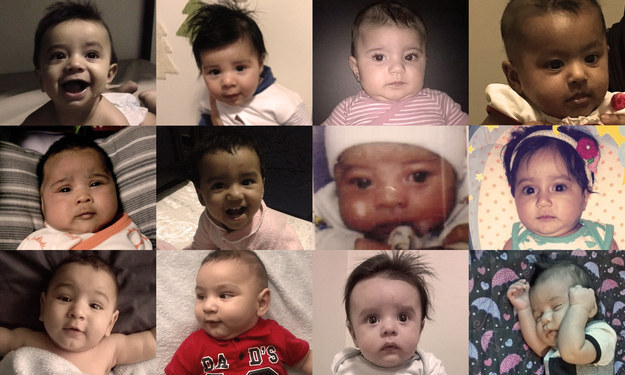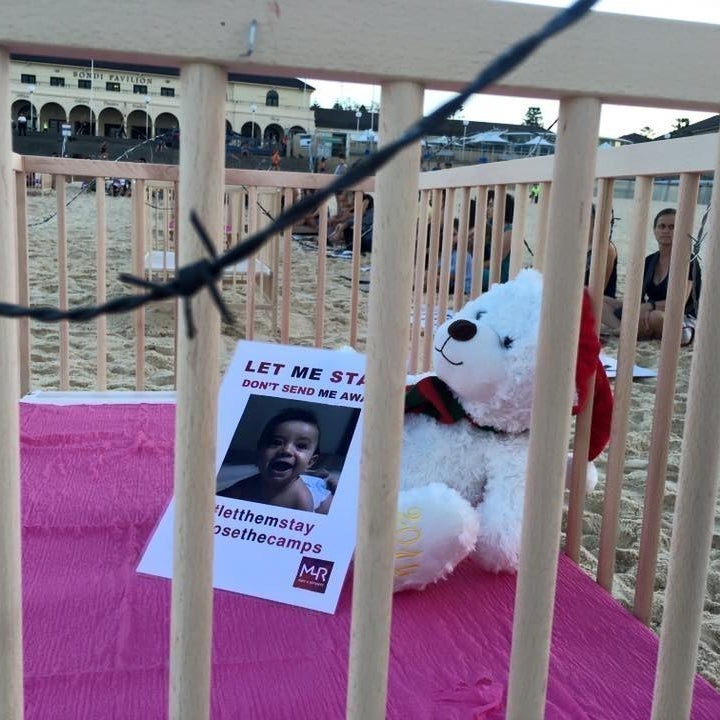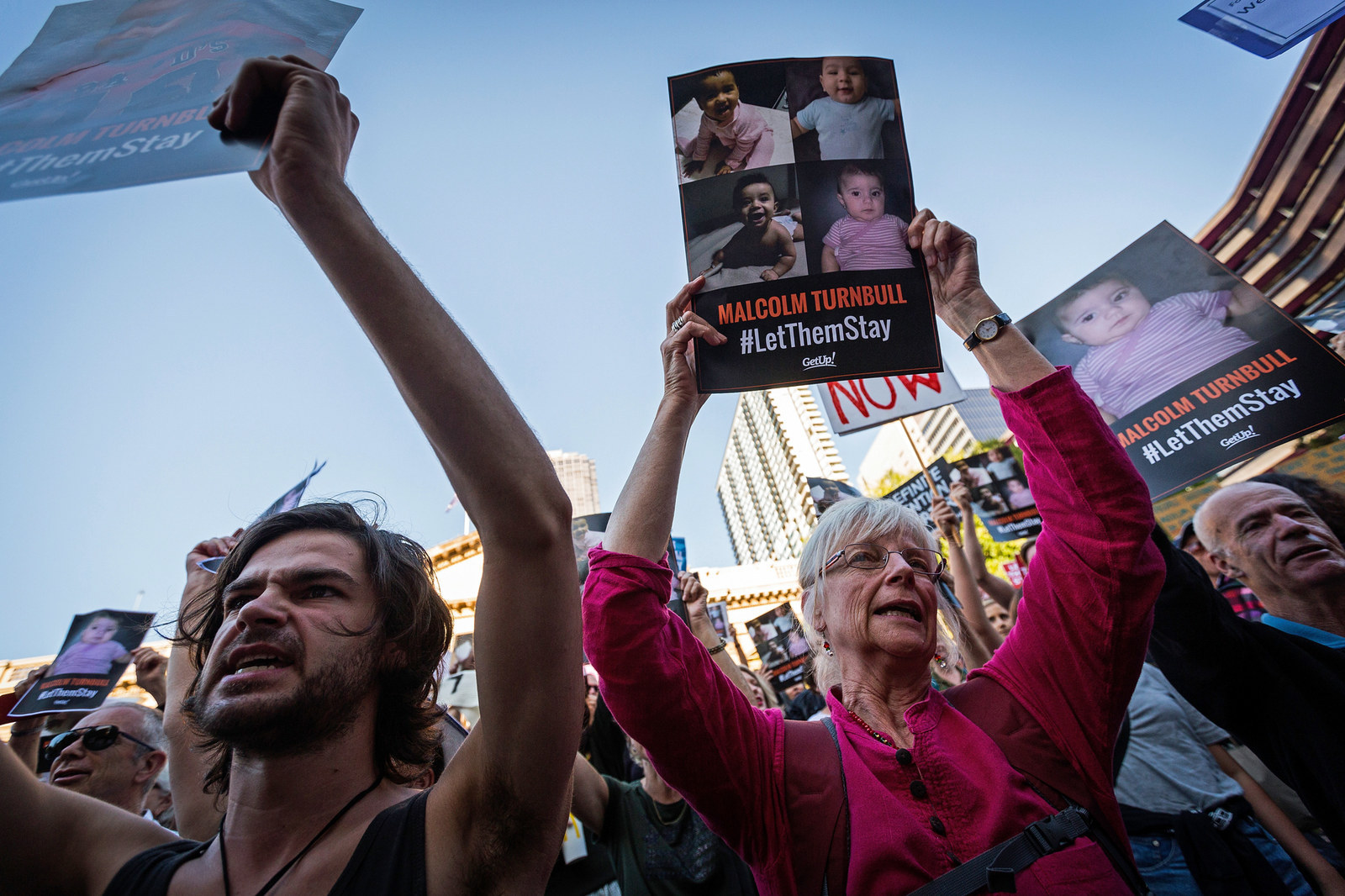
“When I hear that I have to go back to Nauru with my little daughter, I feel as if I am dying.”
During the time Sara* spent in the Australian detention centre on the tiny Pacific island of Nauru in 2014, she saw more than enough to know it is a truly bleak place to raise a child.
Her baby girl, born in Australia, is 14 months old.
“Thinking of her welfare, thinking of her confined life there… It is distressing, depressing,” Sara says. “I can’t think of that.”

Sara, a Bangladeshi woman, is talking to BuzzFeed News over the phone from a detention centre in Darwin. There's an interpreter switching between Bengali and English as he relays questions and answers, and a human rights lawyer is on the call too. The four-way line is bad, but Sara’s anguish is palpable, even over the tinny, distant connection.
She came to Australia on a boat intercepted by authorities in October 2013. Deemed an "unauthorised maritime arrival", Sara spent three months on Christmas Island before moving to Nauru Regional Processing Centre in January 2014. Suffering from medical complications, Sara came to Australia in August and gave birth to her daughter four months later.
Sara is also Plaintiff M68 – the asylum-seeker behind the recent high court challenge that stopped Australia in its tracks.
Lawyers from the Human Rights Law Centre argued on Sara's behalf that it was unlawful for the Australian government to detain asylum-seekers in foreign countries. Had she won, the result would have destabilised Australia’s offshore detention regime. The fate of 267 asylum-seekers currently in detention in Australia – including 37 babies and 54 children – hung in the balance.
However, the court did not agree with Sara’s lawyers, with a 6-1 verdict in the government’s favour. Central to the ruling was an amendment to the Migration Act passed in June last year and applied retrospectively from 2012 that expanded government powers to run offshore processing centres.

Since the verdict came down, Sara has been unable to sleep. Now she waits for a knock at the door confirming her worst fears: that it’s time to leave the safety of Australia for the uncertainty and fear of Nauru.
“The doctor suggested giving me sleeping pills to make me feel better," she says. "But everything they are doing is in vain.”
She feels utterly desperate about the prospect of returning to Nauru, saying it is not a place she can “just live” with her daughter:
“How could I just live in a place which seems to me out of the world?”
Sara lists numerous aspects of life on Nauru that she finds unbearable. It’s impossible to sleep well in the beds they are provided, and the heat is overbearing, with no respite in the tents they call home. Water is rationed, with Sara forced out of the shower after two or three minutes – shampoo still in hair or not.
“The dining space is full of pesticides, flies,” she says. “Any human being, if they went to see this environment, they would see it is actually filthy, unhygienic, and it is not safe for any kids.”
She adds: “There is another significant issue I have to tell you about. The food we are given there, all the canned food, any other Australian food. By the time it reaches Nauru, it is expired. We are given expired food.”
Sara was pregnant during part of her time on Nauru. She says she was afraid to go to the toilet at night even though she often needed to, worried about tripping over on the stony pebbled ground in the dark and hurting her baby.
She also felt fundamentally unsafe in the camp, saying a lack of security left the detainees vulnerable to theft from locals.
“They snatch away our clothes, whatever they see," she says. "It seems to me that they are more poor, they are poorer than us.
“Nauru doesn’t have the security and safety we have [in Australia] as detainees. It seems to be that humanity does not prevail as much as here in Australia.”


While protests over Australia’s harsh border protection policies have been occurring for a long time, the outcome of Sara’s case brought on a fresh wave of Australians pleading with the government to let the 267 asylum-seekers stay.
Thousands rallied across Australia in the days after the decision and the hashtag #LetThemStay was employed on social media. Two activists suspended themselves from a bridge with ropes, Sydney woman Avis Mulhall organised a powerful protest with 37 cribs placed on iconic Bondi Beach – one for each baby who would be deported – and 100 comedians penned an open letter pleading with prime minister Malcolm Turnbull.
Sara says she would like Turnbull to know about the difference in “humanity” between Nauru (“the island he is forcing me to”) and Australia (“his country”).
She thinks appealing to Turnbull’s humanity would be the best way forward, but she has lost all hope that she would be listened to.
“I hope he has got a family life, he knows what is family,” she says. “It is like a utopia, thinking of having the prime minister in front of me. I don’t think I’ll have the chance.”

For the past 10 days, Sara has lived in a sea of uncertainty where every moment could signal her return to Nauru.
Due to her disastrous mental state, she has been assigned two constant security guards.
“Somebody is always monitoring me,” she says. “They said my mental state is not good, and I am not in a healthy condition, that’s why I need security.”
Despite these security measures, Sara says, she feels caught in a never-ending to-and-fro with her case manager and mental health practitioners.
“When I talk through my problems to my case manager," she says, "he sends me to mental health. They send me to the case manager. I feel like a soccer ball.
“I am left saying, 'Where should I go?'”
It’s a feeling that crosses over to Sara’s wider situation. She tells BuzzFeed News she feels like she has “no right to live in this planet”.
She has endured so much to get here – and it has eaten away at her.
“I am totally drained of energy. I don’t feel,” she says, the pitch of her voice raised, as though it is about to crack.
“I don’t feel that I am a human being.”
* Sara’s name has been changed for legal reasons.
CORRECTION
The Bondi Beach crib protest was organised by Sydney woman Avis Mulhall, with activist group GetUp! promoting the event. An earlier version of this post said GetUp! organised the event.
